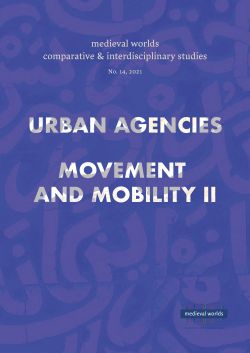İklil Selçuk
S. 53 - 74
doi:
10.1553/medievalworlds_no14_2021s53
Verlag der Österreichischen Akademie der Wissenschaften
doi:
10.1553/medievalworlds_no14_2021s53
Abstract:
This paper surveys several prescriptive, descriptive and narrative sources of moral conduct from patristic teachings to Islamic commanding good and futuwwa (t. fütüvvet) that had resonating effects on the definition of appropriate behavior in urban markets in medieval Anatolia. The purpose of this scrutiny is to highlight converging notions among central governments and religious authorities of honesty in trade, and ways to fight inequalities born out of commerce. A closer look at these resonating moral codes suggests that while actual market conditions, crises, political and economic turmoil of periods of transition gave rise to variations in the interpretation of pre-modern market morals, prevailing common themes allow for a conceptual comparison.
Market inspector, fair trade, just price, hoarding, eparch, commanding good, muḥtasib, economic morals, futuwwa, akhi, Medieval Anatolia
Published Online:
2021/12/01 10:45:58
Object Identifier:
0xc1aa5576 0x003d0808
Rights:All rights reserved.For questions regarding copyright and copies please contact us by email.
medieval worlds provides a forum for comparative, interdisciplinary and transcultural studies of the Middle Ages. Its aim is to overcome disciplinary boundaries, regional limits and national research traditions in Medieval Studies, to open up new spaces for discussion, and to help developing global perspectives. We focus on the period from c. 400 to 1500 CE but do not stick to rigid periodization.
medieval worlds is open to submissions of broadly comparative studies and matters of global interest, whether in single articles, companion papers, smaller clusters, or special issues on a subject of global/comparative history. We particularly invite studies of wide-ranging connectivity or comparison between different world regions.
Apart from research articles, medieval worlds publishes ongoing debates and project and conference reports on comparative medieval research.
Urban Agencies: Reframing Anatolian and Caucasian Cities (13th-14th Centuries)
Guest Editors: Bruno de Nicola and Matthew Kinloch
Preface
Matthew Kinloch and Bruno de Nicola
Reframing Medieval Anatolia, Caucasia, and the Aegean: Narratives, States, and Cities
Matthew Kinloch
Urban Agency and the City Notables of Medieval Anatolia
A. C. S. Peacock
Cities and Imperial Authority in the Western Provinces of the Byzantine Empire, 12th-14th Centuries
Teresa Shawcross
A Conceptual Account of Market Morals that Resonated in Medieval Anatolia under Christian and Muslim Rule
İklil Selçuk
Merchant Capital, Taxation and Urbanisation. The City of Ani in the Global Long Thirteenth Century
Nicholas S. M. Matheou
Looking for Urban Agency in a City of Memorials: Tomb Towers of Late-Thirteenth-Century Ahlat
Oya Pancaroğlu
Urban Agency in the Borderlands: Turkmen Rulers and Administrative Elites in 13th-century Kastamonu
Bruno De Nicola
“These are the narratives of bygone years”: Conquest of a Fortress as a Source of Legitimacy
Dimitri Korobeinikov
Movement and Mobility in the Medieval Mediterranean:
Changing Perspectives from Late Antiquity to the Long-Twelfth Century, II
Guest Editors: Christopher Heath, Clemens Gantner and Edoardo Manarini
The Sicilian Tithe Business: State and Merchants in the Eleventh-Century Islamic Mediterranean
Lorenzo M. Bondioli
"Eager to Go to the Desert": Ambiguous Views on Ascetic Women’s Holy Travels in Late Antiquity
Andra Jugănaru
Where the Long Way Ends: Descriptions of the Mediterranean Sea and Holy Land and the Criticism of Crusading at the Court of Henry II of England (1154-1189)
Fabrizio de Falco
Individual Articles
"I am a virgin woman and a virgin woman’s child". Critical Plant Theory and the Maiden Mother Conceit in Early Medieval Riddles
Alaric Hall and Shamira A. Meghani
Latin and Hebrew Analogues to The Old Norse Leek Riddle
Alaric Hall




 Home
Home Print
Print
 References
References
 Share
Share
